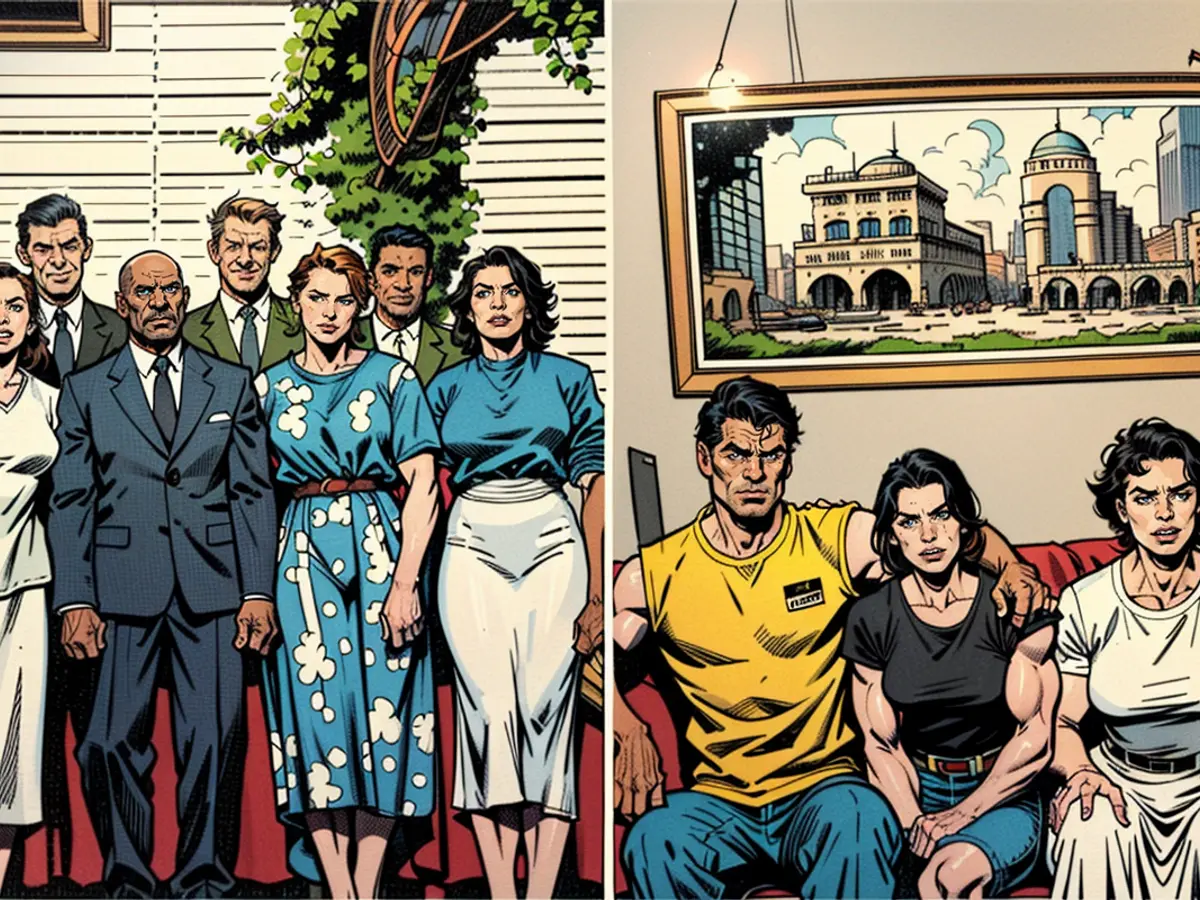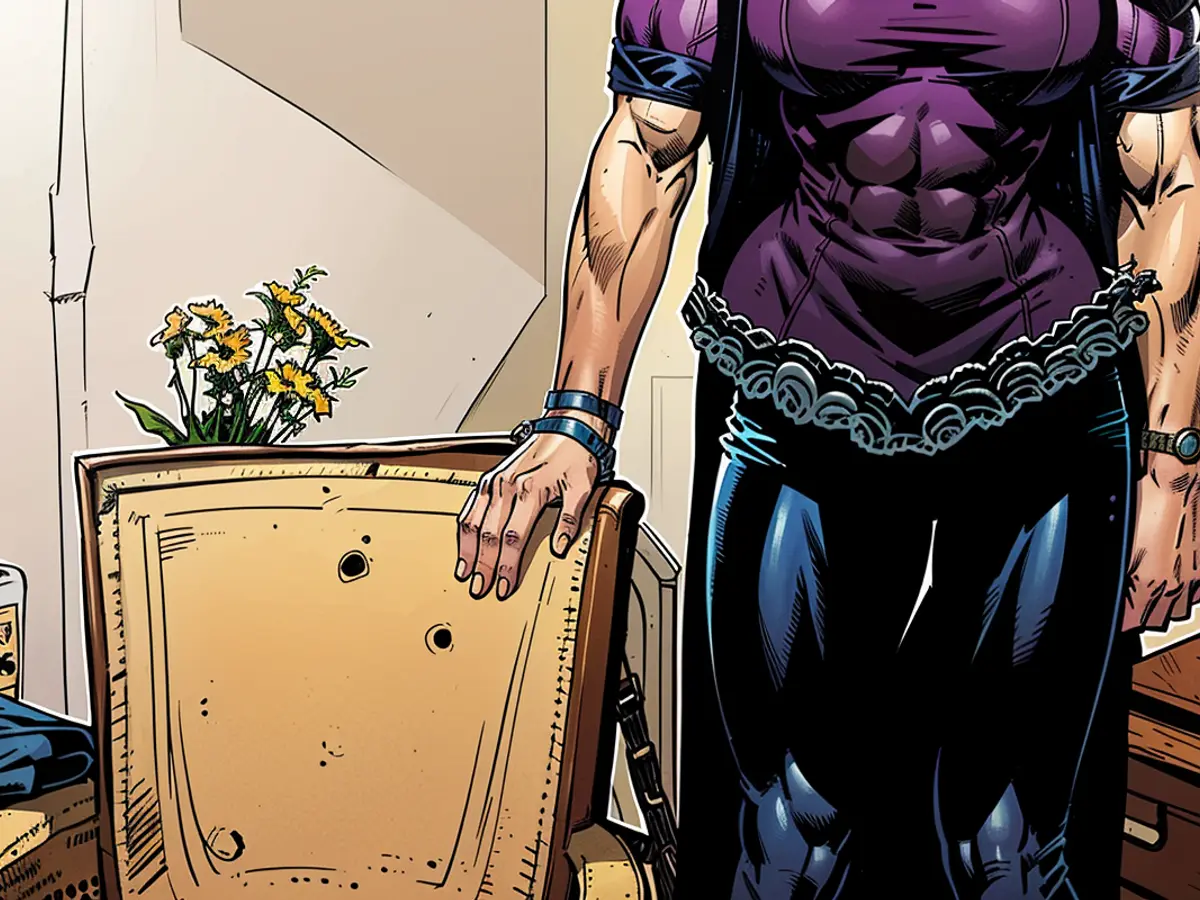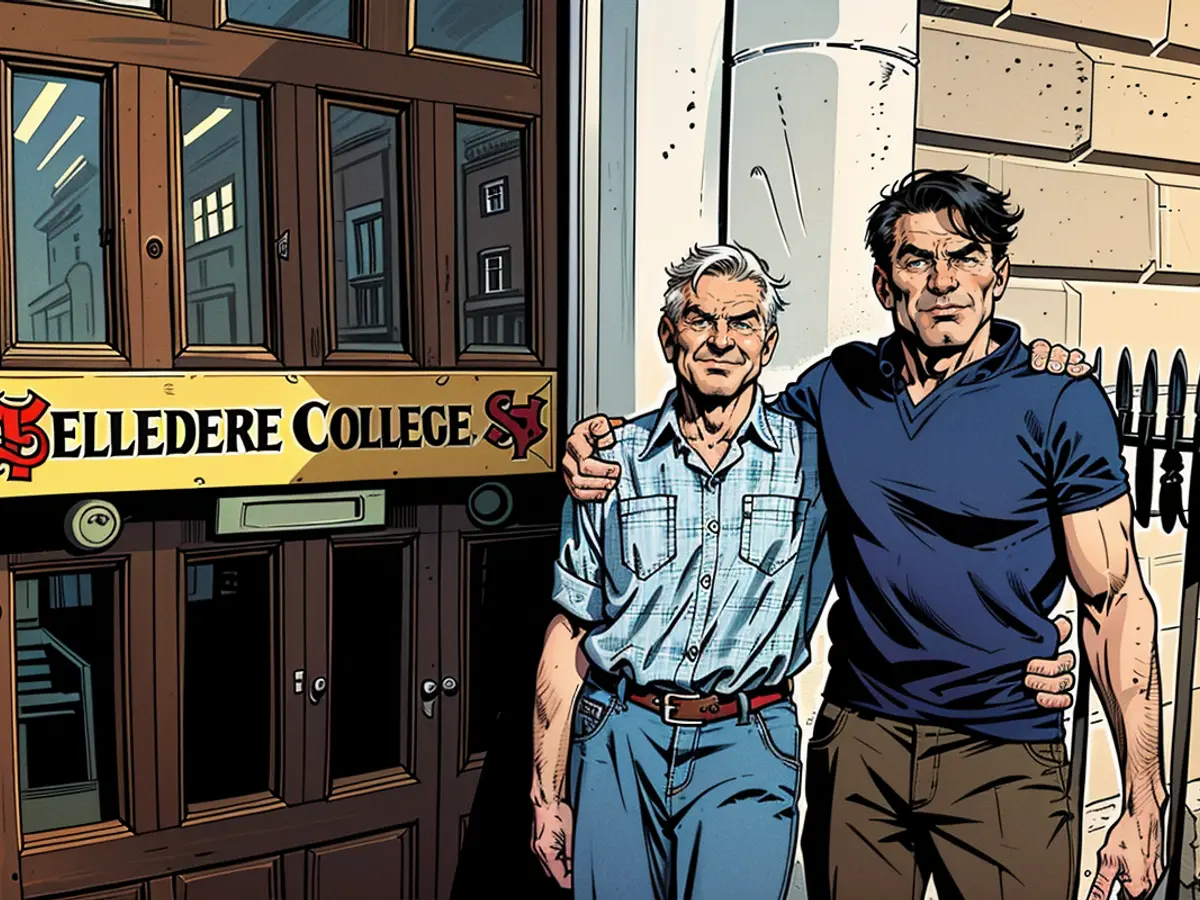A US man was taken in by nuns as a baby. After a DNA test, he now has an Irish passport
He also didn’t know his mother’s name was Therese and his father was called Thomas. Nor was he aware that both were Irish.
Portmann was born in Arizona in 1963. “My pregnant mother was in trouble,” Portmann says, recounting what he now knows.
Therese “somehow got herself from Minneapolis to Phoenix” where she met the Sisters of Mercy nuns, a religious order long connected with assisting unwed pregnant women, who found her a room in the house of a Catholic medical doctor.
“She seems to have been happy and well-treated,” according to Portmann, but three days after giving birth – as per the Sisters of Mercy’s rules – she relinquished her baby. Around a month later, she appears to have travelled back to Minneapolis, where she carried on her life as before.
Therese’s baby was cared for by the nuns for around five or six weeks, before being adopted. The baby called Thomas James Delehanty at birth was named John Edward Portmann by his adoptive parents, who were unable to have children of their own.
Portmann was told from an early age that he had been adopted. However, it was only when he got a DNA test result back in August 2019 that he found out any details of his ancestry.
“When I got the result I had no idea what it meant,” Portmann says. “They just give you a bunch of numbers and you need a trained professional to interpret them for you.”
“The one line I did understand, and it was at the top of the missive, was that I am 100% Irish. I didn’t even know I was 1% Irish.”
DNA detective

Portmann was told by a friend that he should contact a “DNA detective” – a private investigator who helps identify people’s unknown fathers and mothers.
Jennifer Harris, an English professor at Canada’s University of Waterloo, who acts as a DNA detective in her spare time, offered to help after she saw Portmann had posted a request for assistance on the Facebook group, “DNA Detectives.”
“It took her a lot of time. She spent around eight or nine days working very hard and she found my mother and father,” Portmann says.
Harris has helped hundreds of people find out who their biological parents are and likens the process to academic research.
“I’m a literature scholar who digs in the archives, finding lost historical subjects and bringing them back to life,” she says. “My academic research overlaps with my DNA detective work in the space of the archives.”
At first Harris used DNA databases, on websites such as “Ancestry” and “23andMe,” to find people with genetic matches to Portmann, which she divided into the maternal and paternal sides. She then investigated in the archives – looking through obituaries, census documents and old newspapers – to find where someone from one side of the family bumped into somebody from the other side long enough for a child to be born.
According to Harris, it was “fairly easy” for her to determine John’s maternal ancestry, as there was a strong match to a family in Minneapolis and she was gradually able to narrow down the siblings to identify Therese.
However, she was only able to find one paternal DNA match for John in the United States. “I managed to build out a family tree using his name; it was a matter of digging into everything I could in their family history,” she says.
Harris examined the immigration records of the person’s ancestors to see whether any had travelled from Ireland to the US. She found a manifest, listing the cargo, passengers and crew of a ship travelling to America, which listed a Thomas FitzGerald on board.
The DNA Detective found that Thomas FitzGerald went to Minneapolis, which “was not the usual destination for Irish immigrants.”
“Then I was able to find a newspaper article that placed him again in Minneapolis at the time that John would have been conceived,” Harris explains, adding that it “became quite clear John’s father was Thomas FitzGerald.”
Thomas FitzGerald left Dublin to make his fortune in the US, Portmann says “He had worked in a luxury hotel in Dublin, then emigrated at age 25 to the US. He ended up working in a luxury hotel in Minneapolis (the Radisson); he met my mother at the Radisson bar.”
The search for citizenship

Portmann contacted the Irish embassy in Washington DC to see if he could get Irish citizenship, given both his biological parents were from the country. He said he was told by an official that “there was no path forward,” as his evidence was deemed insufficient, news he described as “devastating.”
He contacted a lawyer, who told him that in fact there might be a way to progress, but it would require going to court for a “declaration of paternity” to legally recognize his biological parents.
“The judge had to decide whether or not to grant the ‘declaration of paternity’ and relied very heavily on the testimony from Harris; that really swayed the day,” Portmann says.
The judge was convinced and ruled in his favor. “I had this legal document from Arizona, but Ireland was under no obligation to consider it,” says Portmann.
He sent the “declaration of paternity” to the Irish embassy, who said it would need to go to the country’s government for consideration, according to Portmann. “So, I sent it off to Dublin and I had to wait a year.”
When he heard back from the Irish government, Portmann said they requested he do another DNA test, in an Irish embassy or consulate and with someone from his father’s side of the family.
“I had difficulty securing cooperation from one of my biological half-sisters,” Portmann said, adding that he was therefore left in limbo.
But one day in August 2022, he heard from an official at Ireland’s Department of Foreign Affairs that they had decided to accept his citizenship application. “It was a really joyous day,” says Portmann.
His passport was sent to the Irish embassy in Washington DC. According to Portmann, two of the embassy’s staff, whom he had come to know, sent him a picture of them smiling, while holding the passport, telling him that he had made it across the finish line.
A couple of days later, his new passport came through the post. “I want to thank the Irish government,” Portmann says. “I’m very, very grateful to Ireland.”
He has now met his biological mother’s side of the family. Therese, who died in 2019 (the same year her son first got a DNA test), married a widower with five daughters, who is still alive. Her husband’s children all adored their stepmother, according to Portmann.
Portmann says his mother’s husband was aware she had a child in Arizona and told him she had carried a photograph of her baby with her throughout her life.
Portmann also found out that three of Therese’s five brothers were university professors. They were “quite surprised” when they found out he too was a professor, Portmann says.
Setting a precedent

Ireland’s Department of Foreign Affairs said that while they do not comment on individual cases, others have also “submitted DNA evidence as part of their passport application.”
“Additional documentary evidence is also required before a decision to issue a passport is made,” the Department of Foreign Affairs said. “Such applications require considerable engagement with the applicant to ensure that the Passport Service is fully satisfied the applicant has demonstrated their entitlement to Irish citizenship.”
Portmann hopes his story will show adoptees they have a route to legal recognition of their ancestry: “I want to inspire other adoptees to their constitutional right to citizenship.”
He added that “the really sad thing is poor people can’t afford a lawyer to fight for them,” stymieing their access to citizenship.
“I think John’s case is really important in terms of the precedent it sets for people who are adoptees,” Harris explains. “The way I see it is that John is claiming rights that are often denied to adoptees.”
“Adoption doesn’t sever emotional ties and questions of belonging. It doesn’t sever identity. It complicates it in some ways.”
“The rights of adoptees are so important and historically we have pretended they don’t exist,” Harris said, adding: “I think they do have a claim; it’s part of our human desire to know who we are and what our origins are.”
After discovering his Irish heritage through a DNA test, Portmann decided to pursue his Irish citizenship. He contacted the Irish embassy in Washington DC but was initially told that his evidence was insufficient.
Following this, Portmann sought legal advice and was informed that a court hearing for a "declaration of paternity" could help legalize his parents' identity. The judge relied heavily on Harris's testimony, which significantly influenced the decision in Portmann's favor.
Read also:
- Fear of escalation in the Middle East: US Secretary of State Blinken travels to the region again
- Government circles: US Secretary of State Blinken to travel to Middle East again
- Bridging days 2024: How you can double your vacation this year
- Germany has wanderlust: how tour operators and airlines are looking ahead to the next travel year








